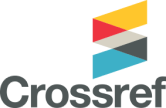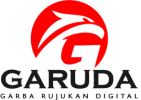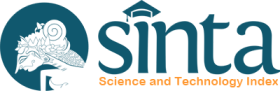TINJAUAN SOSIOLOGIS OLAHRAGA DAN ANAK-ANAK
Abstract
Anak-anak dan olahraga adalah sesuatu yang selalu berjalan beriringan dan merupakan tanggung jawab orangtua anak untuk menangani hal ini dengan cara yang benar. Sangat diperlukan Keterlibatan aktif orangtua dalam memberikan bantuan secara emosional, kritik yang baik dan membangun, membantu mengatasi kekecewaan dan kehilangan. Manfaat yang didapat dari olahraga secara fisik adalah menciptakan gaya hidup sehat yang diteruskan hingga dewasa melalui kesadaran tentang makanan bergizi, berolahraga, dan pengembangkan keterampilan motorik. Manfaat dari aspek sosial meliputi rasa memiliki akan kelompok sehingga dapat terbangun persahabatan, pengembangan keterampilan kepemimpinan dan kerja tim serta belajar sportif. Demikian juga dari aspek emosional berupa pencitraan, harga diri, meredakan stres, dan mengurangi depresi. Disamping itu, manfaat yang diperoleh dari aspek pendidikan adalah mengembangkan disiplin untuk menetapkan tujuan dan bekerja sehingga mencapai tujuan tersebut melalui pemikiran strategis, keterampilan menghitung, dan komunikasi. Perubahan sosial dan tren olahraga pemuda dalam organisasi olahraga saat ini adalah program yang terorganisir dan menjadi semakin diprivatisasi. Olahraga lebih banyak saat ini disponsori oleh organisasi swasta dan komersial dibanding publik/pemerintah. Program yang diselenggarakan semakin cenderung menekankan etika dalam berkinerja (nilai olahraga) dan terjadi peningkatan jumlah fasilitas pelatihan olahraga elit. Orang tua menjadi lebih terlibat dan perhatian akan keberhasilan anak-anak mereka dalam olahraga pemuda yang terorganisir. Demikian juga partisipasi dalam olahraga alternatif dan ekstrim telah meningkat sebagai target dari para sponsor.
Downloads

This work is licensed under a Creative Commons Attribution 4.0 International License.
The use of the article will be governed by the Creative Commons Attribution license as currently displayed on Creative Commons Attribution 4.0 International License.
Author’s Warranties
The author warrants that the article is original, written by stated author(s), has not been published before, contains no unlawful statements, does not infringe the rights of others, is subject to copyright that is vested exclusively in the author and free of any third party rights, and that any necessary written permissions to quote from other sources have been obtained by the author(s).
User Rights
JFR's spirit is to disseminate articles published are as free as possible. Under the Creative Commons license, JFR permits users to copy, distribute, display, and perform the work. Users will also need to attribute authors and JFR on distributing works in the journal.
Rights of Authors
Authors retain all their rights to the published works, such as (but not limited to) the following rights;
- Copyright and other proprietary rights relating to the article, such as patent rights,
- The right to use the substance of the article in own future works, including lectures and books,
- The right to reproduce the article for own purposes,
- The right to self-archive the article
Co-Authorship
If the article was jointly prepared by other authors, any authors submitting the manuscript warrants that he/she has been authorized by all co-authors to be agreed on this copyright and license notice (agreement) on their behalf, and agrees to inform his/her co-authors of the terms of this policy. JFR will not be held liable for anything that may arise due to the author(s) internal dispute. JFR will only communicate with the corresponding author.
Miscellaneous
JFR will publish the article (or have it published) in the journal if the article’s editorial process is successfully completed. JFR's editors may modify the article to a style of punctuation, spelling, capitalization, referencing and usage that deems appropriate. The author acknowledges that the article may be published so that it will be publicly accessible and such access will be free of charge for the readers as mentioned in point 3.












